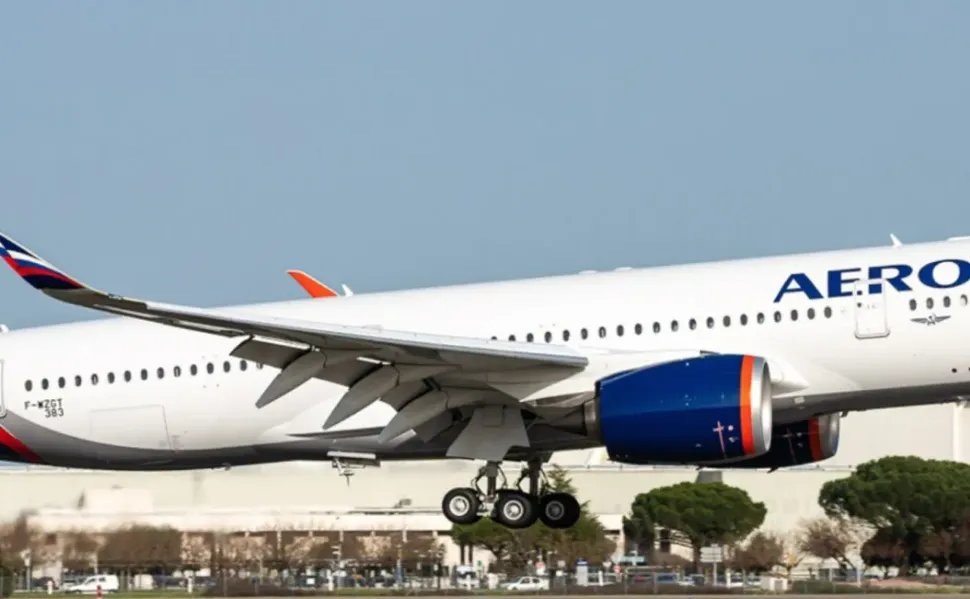
Russian Spares for Airbus and Boeing aircraft
Jun 08, 2022

Russian spares for Airbus and Boeing aircraft encompass a range of components and parts essential for the maintenance and operation of these Western-manufactured airplanes. Following geopolitical tensions and sanctions, the availability of genuine spare parts from original manufacturers has been significantly impacted. As a result, alternative sourcing options have emerged, including the development of local manufacturing capabilities and the utilization of surplus stock from retired aircraft. This shift aims to ensure continued airworthiness and operational efficiency for Russian airlines, while also navigating the complexities of international trade regulations and supply chain disruptions in the aviation sector.
When it comes to maintaining and operating "Airbus" and "Boeing" aircraft, sourcing high-quality spare parts is paramount. "Russian spares" have gained recognition in the global aviation market for their reliability, affordability, and availability. This article delves into the various aspects of Russian spare parts for Airbus and Boeing aircraft, highlighting their significance and providing you with essential information to make informed decisions.
Overview of Russian Spare Parts Market
The "Russian spares" market has become increasingly prominent, especially in the context of economic sanctions and geopolitical tensions. Despite these challenges, Russian manufacturers have adapted, ensuring that they can provide essential components for both "Airbus" and "Boeing" aircraft. The ability to source parts from Russia can offer several advantages, including cost-effectiveness and quicker delivery times for certain components.
Types of Spare Parts Available
Russian manufacturers supply a wide array of spare parts for "Airbus" and "Boeing" aircraft, which can be categorized into several key areas:
- Airframe Components: These include fuselage sections, wing parts, and tail assemblies.
- Engine Parts: Spare parts for both jet engines and auxiliary power units (APUs).
- Landing Gear: Components vital for the safe operation of aircraft during takeoff and landing.
- Avionics and Instrumentation: Electronic components that ensure flight safety and navigation.
- Interior and Cabin Components: Spare parts for seats, overhead bins, and other interior elements.
Advantages of Sourcing Russian Spare Parts
Choosing "Russian spares" for "Airbus" and "Boeing" aircraft offers several advantages:
- Cost-Effectiveness: Russian spare parts are often more competitively priced compared to Western counterparts, making them an attractive option for airlines and operators.
- Availability: With a robust manufacturing base, many Russian suppliers can provide quick turnaround times on orders, ensuring minimal downtime for aircraft.
- Compatibility: Many Russian parts are designed to be compatible with existing "Airbus" and "Boeing" models, ensuring seamless integration.
Quality Assurance and Certification
One of the primary concerns when sourcing spare parts is quality. Russian manufacturers adhere to strict quality standards and often obtain certification from international aviation authorities. This ensures that the parts meet the necessary safety and performance requirements.
The certification process for Russian spare parts usually involves:
- ISO Certification: Most reputable manufacturers will have ISO certifications, ensuring their quality management systems meet international standards.
- Airworthiness Certification: Many parts will be certified for airworthiness, meaning they have been tested and approved for use in commercial aviation.
Challenges in the Market
While there are many advantages to sourcing "Russian spares", there are also challenges that potential buyers should consider:
- Geopolitical Issues: The ongoing geopolitical tensions can impact the availability and pricing of spare parts.
- Logistical Challenges: Shipping and logistics can be complicated, especially with changing regulations.
- Perception of Quality: Some operators may have concerns about the quality of Russian parts, which can affect their willingness to source from this market.
Comparison Chart: Russian vs. Western Spare Parts
To better understand the differences between Russian and Western spare parts, we have compiled the following comparison chart:
| Criteria | Russian Spare Parts | Western Spare Parts |
|---|---|---|
| Cost | Generally lower | Generally higher |
| Delivery Time | Faster for certain components | Varies, often longer |
| Quality Assurance | ISO and airworthiness certifications | Rigorous quality control |
| Market Perception | Varied, some skepticism | Widely trusted |
Conclusion
Sourcing "Russian spares" for "Airbus" and "Boeing" aircraft presents a viable option for operators seeking to maintain their fleets efficiently and cost-effectively. Understanding the advantages and challenges associated with these parts is crucial. As the aviation landscape continues to evolve, staying informed about the best sourcing strategies will ensure your operations remain competitive and compliant.
By prioritizing quality and reliability in your sourcing decisions, you can leverage the benefits of "Russian spare parts" while navigating any potential challenges the market may present.
Related Articles

Explore Thailand: The Best Islands to Visit for Paradise, Adventure, and Relaxation

The Ultimate Guide to the Best Islands in Thailand for Your Next Getaway

Do babies need passports? How to get a passport for a newborn

How to get a U.S. passport fast: here’s how to expedite the process

What is Mobile Passport Control: 5 reasons why you should use it

SENTRI vs. Global Entry: A detailed guide

Do you need a passport to go to the Bahamas? Let’s find out

Do you need a passport to go to Mexico? A detailed guide

Do you need a passport to go to Canada? We got the answer

Do You Need a Passport for a Cruise: An Essential Travel Guide

Booster Seat Requirements: All the Rules to Follow in Your Rental Car

What Are the World’s Most Powerful Passports, and How Does Yours Rank?

How to Take a Passport Photo at Home: A Helpful Guide

You've got to have heart! Southwest's new livery

Your opinion: Should water be free on low cost carriers?

Young women bolder than guys as solo travellers
